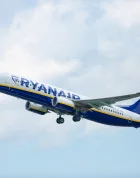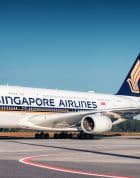Since March 2020, when the World Health Organization first declared COVID-19 a pandemic, the Government of Canada has imposed a mandatory requirement for any travellers returning to the country to quarantine for 14 days.
It has been announced today that the province of Alberta, in partnership with the Government of Canada, will implement a pilot program for rapid COVID-19 testing to replace the requirement for 14-day quarantine upon return.
Alberta’s Pilot Testing Program
Beginning on November 2, 2020, the province of Alberta will launch a six-month pilot program to use rapid testing as a measure to replace the requirement to quarantine for 14 days upon returning to Canada.
The program will be in place for international arrivals at Calgary International Airport, as well as border crossings as the Sweetgrass–Coutts border crossing with the United States, with the view of expanding to Edmonton International Airport in the near future as well.
Canada’s COVID-19 border controls continue to remain in place, so this testing program will be available to Canadian citizens returning to the country, as well as foreign essential workers who are eligible to enter the country.
The rules of the pilot testing program are as follows:
- Upon arrival at Calgary International Airport from an international flight, travellers will be able to take a voluntary COVID-19 rapid test, the results of which will be available within 48–72 hours.
- During the waiting period, travellers are still required to enter into quarantine.
- If the test results are positive, travellers will be required to quarantine for 14 days.
- If the test results are negative, travellers will be able to exit their quarantine, while complying with stringent health measures such as wearing masks in public spaces and avoiding high-risk areas like elderly care homes.
- Travellers must check-in daily with authorities to report any symptoms or the absence thereof.
- Travellers must complete a second COVID-19 test between Days 6 and 7 of their arrival into the province in order to double-confirm their negative status at a community pharmacy participating in the pilot program.
- Travellers must remain in Alberta and must not go to other provinces within the 14-day period following their return to Canada.
The rapid-testing program is limited to Alberta for the time being during the pilot phase while the project gets on its feet. Edmonton International Airport will be the likely next recipient, with a timescale of “early in the new year” being mentioned, and I would expect the program to be expanded nationwide eventually if the pilot is a success.
You can watch the official press conference hosted by Alberta’s premier and health minister here:
What Does This Mean for Canadian Travellers?
The underlying message behind the pilot implementation of this rapid testing program is clear: taking into account public health advice and the broader considerations of both physical and mental health, there is undoubtedly a need to allow people to live their normal lives as much as possible while managing the very real risk of COVID-19.
I have a feeling that Alberta’s relatively low COVID-19 numbers, the relatively lower and more manageable traffic numbers at Calgary International Airport, as well as the Alberta populace’s relative support of relaxing lockdown measures compared to the rest of the country all played a key role in the province being chosen to pilot this rapid testing program.
If you live outside of Alberta, you’ll still be required to quarantine for 14 days upon returning home after international travel. The only exception would be if you fly into Calgary International Airport upon your return – although you’ll still need to remain in the province of Alberta for a 14-day period in order to comply with the rules.
It therefore must be said that most travellers in other provinces will still be deterred from international travel for the time being, although I’m sure we’ll all be keeping a watchful eye on how the Alberta pilot program turns out, in the hopes that it successfully prevents COVID-19 transmission from outside the country while allowing travellers to resume their normal lives upon receiving a negative test.
If you’re willing to spend a 14-day period in Alberta after your international trip, you’ll want to consider taking a direct flight into Calgary International Airport for your return journey, so that you’d at least be able to move around the province upon receiving a negative test.
Calgary is WestJet’s hub airport, who currently operate a direct flight to London Gatwick. There’s also KLM’s thrice-weekly direct flight between Calgary and Amsterdam; even though the European Union recently removed Canada from its travel whitelist, connections via EU airports are still permitted.
Of course, I wouldn’t be surprised to see Air Canada suddenly ramping up its YYC services very shortly, too. 😉
Conclusion
Canadian travellers have been waiting for this moment for a long time. As of November 2, 2020, in partnership with the federal government, Alberta will launch a pilot rapid testing program with a view to replace the 14-day mandatory quarantine requirement for returning international travellers and reduce the quarantine period to as little as two days.
It’s a groundbreaking step towards the resumption of international travel and the gradual restoration of the travel industry that we all love – including the thousands of jobs and families who depend on the industry that have been impacted by this year’s events.
Those of us based in the rest of Canada will continue to be subject to either a 14-day quarantine at home or a 14-day waiting period within Alberta’s borders upon returning from an international trip, although I’m sure we’ll be closely watching how the Alberta experiment plays out, with fervent hope that the rapid travel testing program is successful in relaxing the quarantine requirement while managing COVID-19 transmission from abroad.















I really want to go to Hawaii or Palm Springs and flying from Ontario through YYC is fine. Just working on that Alberta ID now. AC needs flights from YYC to some warm places now as they have none.
I expect that the international flights have to be direct to Calgary. In other words, flying from Paris to Calgary via Toronto would not be eligible for the quick test. Is that correct?
I’m in the US right now, and almost rerouted my return through Calgary to avoid the quarantine in Ontario. Thankfully I read the entire article before pushing the button. Hopefully this comes to Toronto soon, before Air Canada goes bankrupt.
Requiring a daily call-in to let them know if we have symptoms or not is ridiculous you either have faith that the people will follow through or you don’t. Adding a second test on top of the initial one seems extreme enough
Good that there’s finally been an a change – although frankly still too strict and oppressive. The negative test should be a one and done. We are allowed to enter other countries with a negative test, we should be able to come back with a negative test in hand and have a green light.
Unfortunately, if you look at the state of other countries much of that spread is related to inadequate testing and contact tracing. These tests are not foolproof – so they do not pick up all positive cases – and they only test at a moment in time – hence the need for a second test or for a 14 day quarantine period (as required in the Atlantic bubble).
I hear a test developed in Canada called Sona is the way to go! They are awaiting for HC approval. Test and go no quarantine needed
It’s nice to learn that Alberta is leading the way to restore some semblance of normality. Unfortunately most Canadian expats won’t be able to return home for the holidays unless this program gets expanded. A 14-day quarantine upon entering Canada followed by a second quarantine upon returning is beyond prohibitive. I can certainly understand the argument that non-essential travel should be avoided but preventing families from spending time together over the holidays when Covid rapid antigen testing solutions are widely available is frustrating to say the least.
Tests are available but again, they are not 100 per cent accurate. Thus, it’s not just an issue with availability but also with the fact that they can produce false positives and false negatives or not pick up people who may not have high enough levels of the virus but may test positive a few days later. This issue will not be solved by a ‘silver bullet’ test but by adherence to public health guidance plus testing plus vaccines.
Rapid testing solutions with > 99% specificity and sensitivity are available. While I agree that testing alone will not resolve the Covid crisis, federal and provincial governments should take a fact-based and scientific approach that balances the risk of new infections from Canadians returning home from abroad with the negative economic and social impacts of lengthy quarantine measures.
https://www.cdc.gov/coronavirus/2019-ncov/lab/resources/antigen-tests-guidelines.html#anchor_1600531783097
Example of a Rapid antigen test with sensitivity of 96.52% and a specificity of 99.68%: https://www.roche.com/media/releases/med-cor-2020-09-01b.htm
At least the government is moving forward in testing a sensible alternative to the 14-day quarantine, which currently makes travel unfeasible for most people.
“The Government of Alberta and Government of Canada have agreed on a 26-week pilot project that will make YYC the exclusive airport for Canada’s first quarantine reduction project …” I fear it may be not until MAY when we get this outside Alberta 🙁
I’d be very surprised if a certain Canadian airline – one that prides itself upon issuing refunds for refundable flights – isn’t putting every effort into lobbying to get something similar implemented at YYZ.
Pretty sure they are. According to an AC pilot in the family.